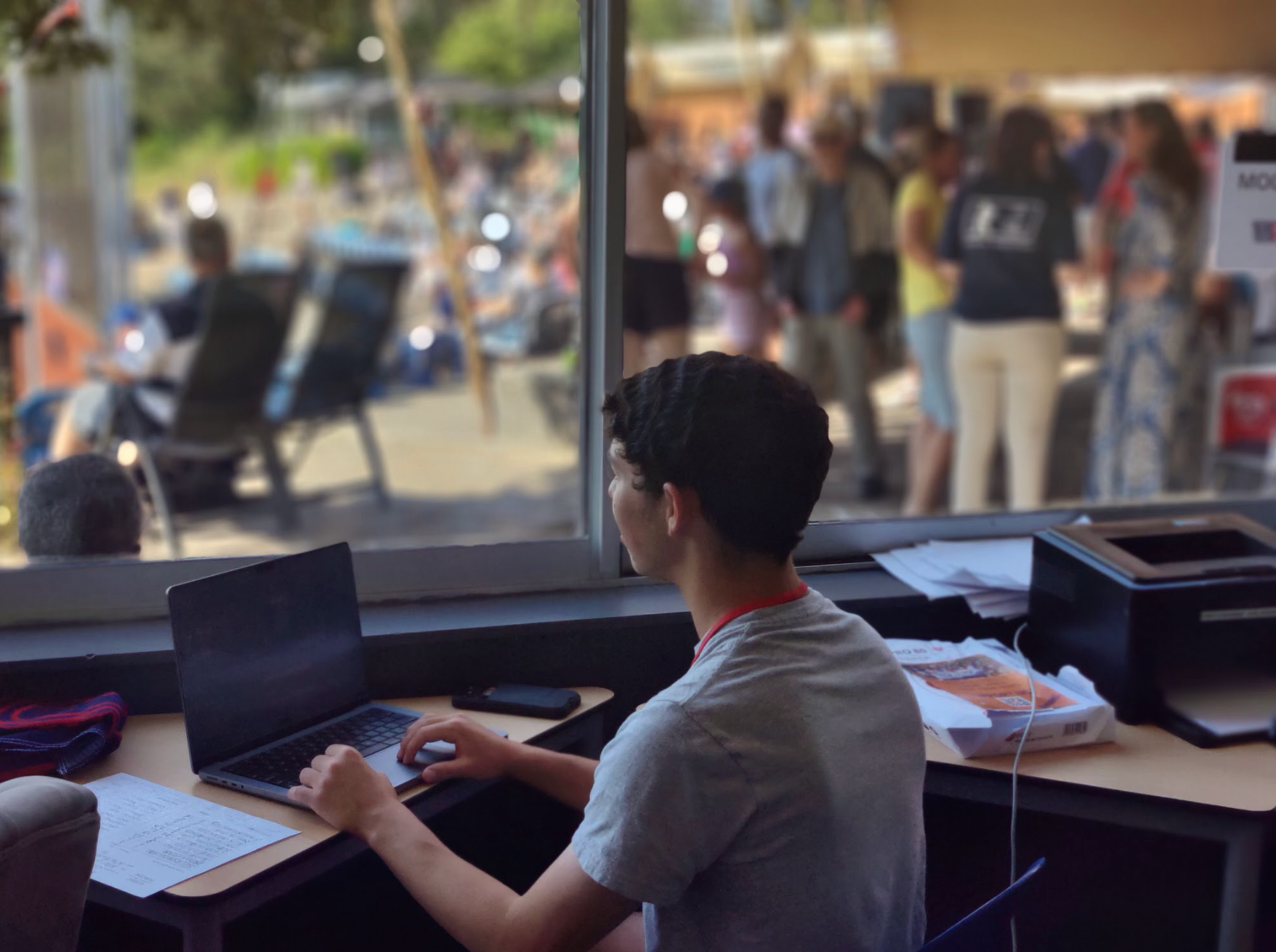
This as-told-to essay is based on a conversation with Noah Katz, a full-time college student and content creator. The following has been edited for length and clarity.
In 2019, when I was 16 years old, I heard there was a shortage of umpires in my town. I decided to take the job and made around $50 a game. During this time, I went out to the same Little League field where I had been playing and umpiring with my iPhone and my 13-year-old little brother as a cameraman. I filmed a video about why being an umpire is the best part-time job. I posted the video on a new TikTok account I created and it went viral.
This was in June of 2021 and since then, I grew my social media following to over 100,000 followers across TikTok, Instagram, and YouTube.
I’m a very niche content creator. I share the behind-the-scenes of what it’s like to be an umpire and how people can become one. I spend around 25 hours a week as a content creator and consider it my full-time job. But I’m also a full-time college student at Clark University. Here’s what it’s like to do both at the age of 20.
Every hour of my day is accounted for by work, school, and sports
Not only am I a sophomore in college and a content creator but I’m also a Division Three cross-country athlete at my university. I have a lot that I juggle and usually find myself working 70 hours a week on all three of those things.
An example day in my life might look like this:
I wake up at 6:00 a.m. and go to cross-country practice until 8:30 a.m. After that, I’ll get breakfast and lift in the gym until 9:30 a.m. I usually have classes until 3:00 p.m. and once those are over, I take off my student hat and put on my content creator hat.
I spend the rest of the day planning what videos to film, filming them, editing them, and scheduling them to go out during the week. Depending on how much homework I have, I’ll pause working on content creation at around 8 or 9:00 p.m. to begin working on what’s due for school that week.
I usually go to sleep around 11:00 p.m. to prepare for the next day.

Batching content helps me stay consistent during busy weeks at school
Because I’m juggling a lot and my schedule is always so full, I batch content as much as possible. When I’m going to big events, I will map out the videos I want to shoot ahead of time so that I’m prepared to film as much as possible every day. I try to post five times a week and spend at least one day a week filming content so that I’m consistent and always have videos ready to post.
To simplify my creation process, I have three main types of videos that I’ll make. I’ll post a day-in-life video showcasing the behind-the-scenes of my life. I’ll share videos giving tips about being a professional umpire and interviews with people in the industry.
Having these buckets helps me brainstorm content and also makes it clear to my audience what they can expect on my channels. This lets them know the value that they will get from me week after week. I do think that has helped me gain a loyal following.
I try to work smarter not harder as a content creator. I will post the same video across different platforms. For example, I’ll take an Instagram Reel and share that same video on TikTok and YouTube Shorts.
I might change it slightly, for example, adding music that is trending on that specific platform, but that only takes a few minutes. Doing this helps me put out content to my subscribers on each platform five to six days a week.
Also check out: Meet a Military Mom Who Discarded Her Corporate Career to Become a Successful TikTok and Instagram Influencer
I monetize my content in a variety of ways and reinvest the money into content creation
I treat content creation like it’s my business. To have a successful business, it’s helpful to have multiple streams of income. I have three main ones as an influencer. First, I monetize my videos on TikTok using the Creator Fund which pays me money every month based on video views and engagement. I also work with brand partners like Mova Globes on sponsored content.
Finally, I sell a course on my website about how to become an umpire. In the future, I’ll likely incorporate affiliate links and sell merchandise on my website to bring in more revenue.
Because I’m fortunate enough to have a full-ride scholarship that covers my college bills, I can use the money I make as a content creator to reinvest in my business. I use the cash for travel to baseball games and tournaments to shoot content, new cameras, or to hire freelance video editors when I need extra help.

Become a content creator for a reason that’s bigger than the money
My advice to college students who want to become content creators is to make sure you’re doing it for the right reasons. If you’re doing it to just go viral or make money, you might not have the long-term career that you think you’ll have.
That’s because success in this job typically doesn’t happen overnight. It took me a few months of posting regular content to see traction and to gain a steady following. Plus, some videos might get hardly any views and others might get millions of views. The ups and downs of that can make you want to quit.
I’m a content creator because I love what I do and feel like I’m living my dream. My whole life I wanted to be a content creator and now I get to do that authentically. I remind myself of that a lot and it helps me enjoy the work even when a video of mine tanks.
Also check out: Meet an Influencer Who Turned Being a Good Friend Into a 6-Figure-a-Year Job as a Content Creator
Being a content creator is a job that doesn’t always pay off
I spend a lot of time as a content creator with my screens, whether I’m in front of it or behind it editing the videos. So the best part of the job is when I’m at a baseball game or tournament shooting content where people recognize me from my channel. It helps me feel connected to my audience and see the impact that I’m making in my niche.
But being a full-time college student and influencer isn’t as glamorous as it might seem. There are tough times almost every week. There are moments when I’ve spent a thousand dollars on a trip to film content and those videos barely get any views. I remind myself that not every decision I make as a content creator is going to lead to a big moment of success.
But if being a content creator is the job that I want, I have to keep creating even during the downturns. I tell myself quite often that I have to stick with it through the hard times because no matter what I do, or how hard I work, there will always be hard times.
When I graduate in two years, I want to get my MBA and continue to work as a content creator. Being an influencer is more than a job title, it’s a business. The opportunities to expand my income and grow as the CEO of my own channels seem endless—and I’m excited about that.




